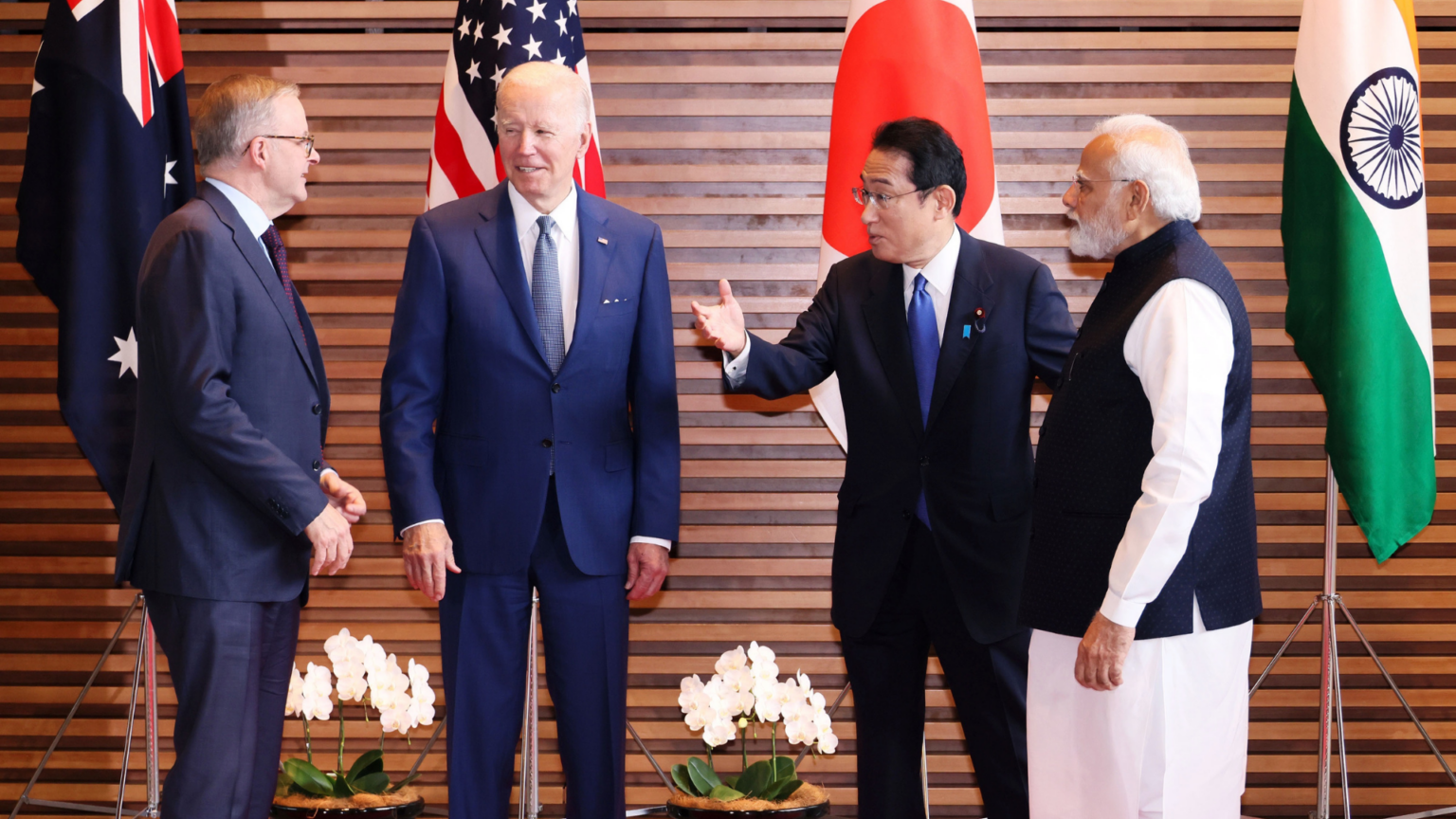Quad announced the Indo-pacific Economic Framework on 23 May, on the sidelines of Quad leaders Tokyo summit. It has Quad members state with 9 other countries of Indo-pacific region, including Brunei, Indonesia, South Korea, Malaysia, New Zealand, Philippines, Singapore, Thailand and Vietnam. It is seen as an expansion of Quad or Quad plus. Interestingly, It has grouping of those nations which are mostly included in the RCEP (excluding China, Laos, Myanmar and Cambodia) and ASEAN (excluding Laos, Myanmar and Cambodia).
The whole idea of this framework is similar to the Quad, which is the free, open, fair, inclusive, interconnected, resilient, secure, and prosperous Indo-Pacific. It is developed to consider the economy of Indo-pacific region and to counter a unilateral supply chain in the world and to give a alternative to the world in terms of supply chain of key material of production.
Framework objectives
This framework has drawn upon the four pillars, free and fair trade and to boost investment, resilient and diverse supply chain of materials, development of clean energy technologies to decarbonisation and sustainable and durable infrastructure, to curb tax evasion and corruption in the Indo-pacific. And importantly It comes out from the joint statement that the framework will provide facility to finance the clean energy technologies to members state, specially a low rate finance.
However, this framework is also open to add many areas of cooperation and to consult with the member state. It means that other matter of importance can be added in the coming years in the framework. Statement from the white house stated that “We are continuing to identify additional areas of cooperation based on consultations among partners to further our shared interests, with a view to advancing regional economic connectivity and integration”.
On the inauguration of the Indo-pacific Economic Framework, Prime Minister Modi said that announcement of IPEF is a declaration of a collective desire to make the Indo-Pacific region an engine of global economic growth. India has historically been at the centre of trade flows in the Indo-Pacific region, having the world’s oldest commercial port in Lohtal, Gujarat, further he highlighted the foundation of resilient supply chains must be 3T’s – Trust, Transparency and Timeliness.
Others initiatives in leaders summit
The Tokyo summit of Quad leaders has launched the Q-CHAMP or “Quad Climate Change Adaptation and Mitigation Package” for green shipping and ports aiming for shared green corridor, clean energy (clean hydrogen) supply chains and for disaster and climate resilient infrastructure such as the efforts through the Coalition for Disaster Resilient Infrastructure (CDRI).
Therefore, The Tokyo summit has decided to initiate the first-ever Quad Cybersecurity Day to help individual internet users to protect themselves from cyber threats across the Quad countries and the Indo-Pacific region.
The Joint statement of Tokyo summit of Quad leaders stated that Quad will seek to extend more than 50 billion USD of infrastructure assistance and investment in the Indo-Pacific, over the next five years and will work to strengthen capacities of the countries to cope with debt issues under the G20 Common Framework and in close collaboration with finance authorities of relevant countries, including through the “Quad Debt Management Resource Portal.”
Meanwhile, the Quad leaders summit, Tokyo discussed range of matters of importance including Covid-19 and Vaccines supply under Quad initiative, Terrorism, Myanmar political crisis and ASEAN plane to resolve the crisis, 5G and Open RAN, space and Quad fellowship, the joint statement suggested.












